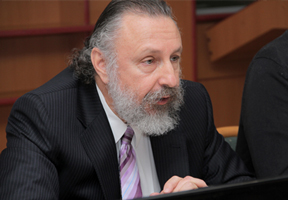
 The
Brexit "vote heard ‘round the world” has dealt a body blow to the smug
globalist establishment, not least to Barack Obama and Hillary Clinton, who
lobbied for the "Remain” camp. Hence the whining of elites who never imagined
the British electorate would muster the courage to defy them.
The
Brexit "vote heard ‘round the world” has dealt a body blow to the smug
globalist establishment, not least to Barack Obama and Hillary Clinton, who
lobbied for the "Remain” camp. Hence the whining of elites who never imagined
the British electorate would muster the courage to defy them.
Britain will survive, if not necessarily as single state, depending on what Scotland does next. But the real "Sick Man of Europe” is the European Union itself with its monstrous Soviet-like bureaucracy. Euro-skeptic parties in countries across the Old Continent, both Right and Left, now demand their voice as well.
Still uncertain is what impact Brexit and the shakiness of the EU will have on that other "Euro-Atlantic,” Brussels-based bureaucracy: the North Atlantic Treaty Organization. To some, NATO appears the "answer” to questions about the EU’s future. Former NATO Supreme Allied Commander Admiral James Stavridi predicts a "stronger transatlantic military alliance” to counter "adventurism by Putin's Russia.” Even the usually level-headed Steve Forbes has suggested that in response to what he considers the Brexit "disaster,” NATO should deploy an armored division to Poland and another to the Baltic States.
Brexit aside, placing NATO forces in these areas can only have one purpose: to signal to Russia that the United States is willing to risk a nuclear war by pretending to defend areas that are military indefensible and not under threat anyway. The only result would be an inevitable and decisive counter-escalation by Moscow, creating an increased danger of an unintended incident could lead to war.
How that makes Americans, much less Poles and Balts, more secure is a mystery.
As Donald Trump has rightly pointed out, NATO has been a total failure in countering the real threat to Europe’s and America’s security: the growing migrant-driven jihadist Fifth Column inside western countries that increasingly unleashes attacks at will. No one doubts that after Paris, Brussels, San Bernardino, and Orlando, and Istanbul there will be more of the same.
What good has NATO been in countering that threat? Not much, and moreover, their intelligence even failed to locate terrorist cells in its own Brussel’s headquarters backyard. NATO’s main relevance to the jihadist peril so far is to boost it by overthrowing Libya’s government and turning that country into a terrorist playground and a staging point for unvetted migrants crossing the Mediterranean to Italy.
EU foreign policy chief Federica Mogherini pledged last year that, under her organization’s "strategic partnership” with NATO, human-smugglers’ boats on the Libyan coast would be destroyed before they could be loaded with migrants. To date, no such action has been taken. The boats continue to set off for Europe, at increasing pace due to nice weather, with their occupants rescued and taken to Europe.
While the smugglers are making a good living NATO is getting ready to move four battalions to Poland and the Baltic states, including a German one to be stationed within 100 miles of St. Petersburg. Apparently this is to remind the Russians of the 872-days siege of that city by the Nazis, which resulted in over 1.5 million deaths mainly due to starvation.
Quaffing beer in Warsaw or Riga with local blondes is no doubt a more pleasant billet for American and allied personnel than fighting jihadists in the Middle East. But why should U.S. taxpayers foot the bill?
Can NATO shape up and become a useful organization protecting America’s security needs? The record is not encouraging. A final answer can only come only if the next president reexamines the U.S. commitment to NATO from scratch.
This isn’t just a question of greater "burden-sharing,” which NATO-philes have been prattling on about for decades. What’s needed is a zero-based assessment of not only how NATO functions but the very purposes behind it. That starts with asking the only really relevant question: does this alliance make America and Americans more secure? During the Cold War against communism, the answer was an easy affirmative. But if NATO’s purpose today is reckless grandstanding in parts of the former Warsaw Pact and USSR while neglecting the terrorist Trojan Horse, the answer should be a resounding No.
Maybe it’s time to draw a lesson from the land Americans once called our Mother Country and decide on an AmerExit – from NATO. At the very least, if there’s any hope of reforming the alliance to enhance our safety, not imperil it, that prospect needs to be raised.
Perhaps either a rebuilt NATO, or a new organization specifically targeted towards global terrorism, would have a future. We might then find common ground with new partners outside of Europe, such as members of the Russian- and Chinese-led Shanghai Cooperation Organization (SCO), for which anti-terrorism is a key mission. While perhaps not a formal alliance, a new cooperative group, like an International Anti-Terrorism Organization (IATO), could play a constructive role.
But right now, NATO, as currently constituted, doesn’t. Let’s fix it, fast. Or let’s get out.
 Edward Lozansky is president of the American University in Moscow, Professor of Moscow Sate and National Research Nuclear Universities
Edward Lozansky is president of the American University in Moscow, Professor of Moscow Sate and National Research Nuclear Universities
 Jim Jatras is a former U.S. diplomat and foreign policy adviser to the Senate GOP leadership. He shortly will release a major study on the media’s role as a transmission belt for "wars of choice.”
Jim Jatras is a former U.S. diplomat and foreign policy adviser to the Senate GOP leadership. He shortly will release a major study on the media’s role as a transmission belt for "wars of choice.”



_jpg/250px-ElbeDay1945_(NARA_ww2-121).jpg)





